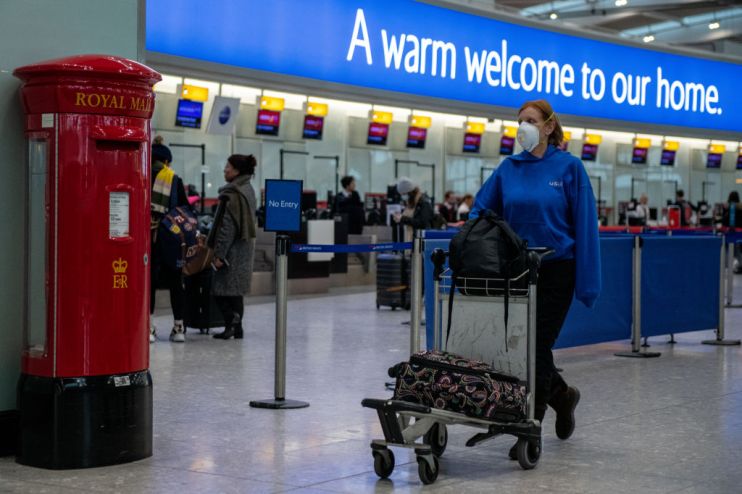Business on the brink: Airlines, hospitality and train operators in line for state support

The existential threat to business posed by the Covid-19 pandemic became crystal clear this weekend as a host of industries warned of a
potentially fatal cash crunch in the coming weeks.
The aviation industry led calls for targeted government support, with train operators struggling with lower passenger numbers and the hospitality industry not far behind.
Carrier trade body Airlines UK said “who knows what will be left” if the government were to fail to step in to support giants including Virgin Atlantic and British Airways.
That call was echoed by one London hospitality bigwig, who said small bars and restaurants would begin making redundancies as soon as this week.
With the global economy essentially paralysed by a combination of travel restrictions and uncertainty, PM Boris Johnson will seek to find an international consensus on packages to support businesses through a host of phone calls with other world leaders this week.
Over the weekend he spoke with US President Donald Trump and Japanese PM Shinzo Abe, noting economic disruption in both calls.
Last week markets across the world tumbled amid fears of lengthy disruption to supply chains, an ongoing oil price war and virus fears.
The airline sector is set to be top of the list for support. Yesterday, Stockholm-based SAS said it was temporarily laying off 10,000 staff — 90 per cent of its workforce — and suspending most of its operations as demand
becomes “essentially non-existent”.
Today Virgin Atlantic will deliver a letter to Johnson calling for a £7.5bn package to support the UK’s airlines.
Virgin’s demands, first reported by Sky News, include a credit facility for the duration of the pandemic.
Unite the union has also called on the government to support jobs in the industry by making contributions to cover workers’ pay and to consider taking a stake in airlines and airports to help ensure their survival.
While airlines hit turbulence, there is also trouble on the railways, with passenger numbers significantly down across the UK.
One industry source told the BBC that ridership has fallen by a fifth on certain lines. It is understood that train companies too are in negotiations with the government about how they can survive the coming weeks.
On the capital’s streets it is a similar story for pubs, bars and restaurants, as punters stay at home.
Some could have just four to six weeks left before they run out of cash, Jonathan Downey, the founder and chief executive of street food market owners London Union, told City A.M.
Visitors to London’s restaurants and bars fell 39 per cent last Saturday compared to 2019, according to analysis by Wireless Social.
Chancellor Rishi Sunak announced a package of measures in last week’s Budget designed to help small operators, including discounts on business rates, but Downey said “it is just meaningless now because things are moving so quickly.”
Many of the emergency measures will not apply to bars and restaurants in the centre of London as their so-called rateable value is above the threshold for support.